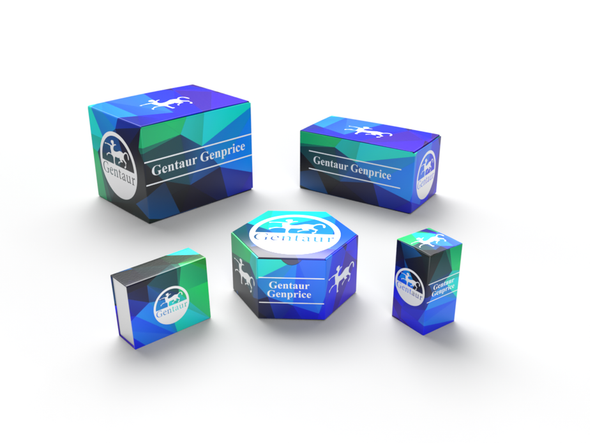Description
Goat Anti-Human IL-20 Antibody | 102-P165G | Gentaur UK, US & Europe Distribution
Species: Anti-Human
Host / biotech: Goat
Comment: N/A
Label: N/A
Clone / Antibody feature: Goat IgG
Subcategory: Polyclonal Antibody
Category: Antibody
Synonyms: IL20; IL-20; IL10D; ZCYTO10
Isotype: N/A
Application: ELISA, WB
Detection Range: N/A
Species Reactivity/Cross reactivity: Human
Antigen: Recombinant human IL-20
Description: Human Interleukin 20 (IL20) was identified by searching sequence databases for translated sequences containing a signal sequence and amphipathic helices found in helical cytokines. Human IL20 is synthesized as a 176 amino acid (aa) precursor with a 24 aa signal sequence and a 152 aa mature segment. There are no N-linked glycosylation sites and it is doubtful that the native molecule is glycosylated. Although IL20 is a distant member of the IL10 family, it functions as a monomer. IL20 shares less than 40% aa sequence identity with other IL10 family members. Mouse and human IL20 share 77% aa sequence identity in their mature segments. Human IL20 is active on mouse cells. IL20 production has been found in skin and trachea. In particular, activated keratinocytes and, possibly, monocytes are reported to express IL20. There are two heterodimeric receptor complexes for IL20. The first is composed of IL20 Rα and IL20 Rβ. The second is composed of IL22 R and IL20 Rβ. Whereas the IL22 R/IL20 Rβ complex is shared with IL24/ mda7, the IL20 Rα/IL20 Rβ complex is shared with both IL19 and IL24. Little is known about the function of IL20. It is reported to induce the proliferation of multipotential hematopoietic progenitor cells, direct the differentiation and expansion of keratinocytes, and promote the release of proinflammatory mediators in keratinocytes and other IL20 receptor expressing cells.
Purity Confirmation: N/A
Endotoxin: N/A
Formulation: lyophilized from PBS
Storage Handling Stability: The lyophilized antibody is stable for at least 2 years from date of receipt at -20°C. The reconstituted antibody is stable for at least two weeks at 2-8°C. Frozen aliquots are stable for at least 6 months when stored at -20°C.
Reconstituation: Centrifuge vial prior to opening. Reconstitute in sterile water to a concentration of 0.1-1.0 mg/ml.
Molecular Weight: N/A
Lenght (aa): N/A
Protein Sequence: N/A
NCBI Gene ID: 50604










